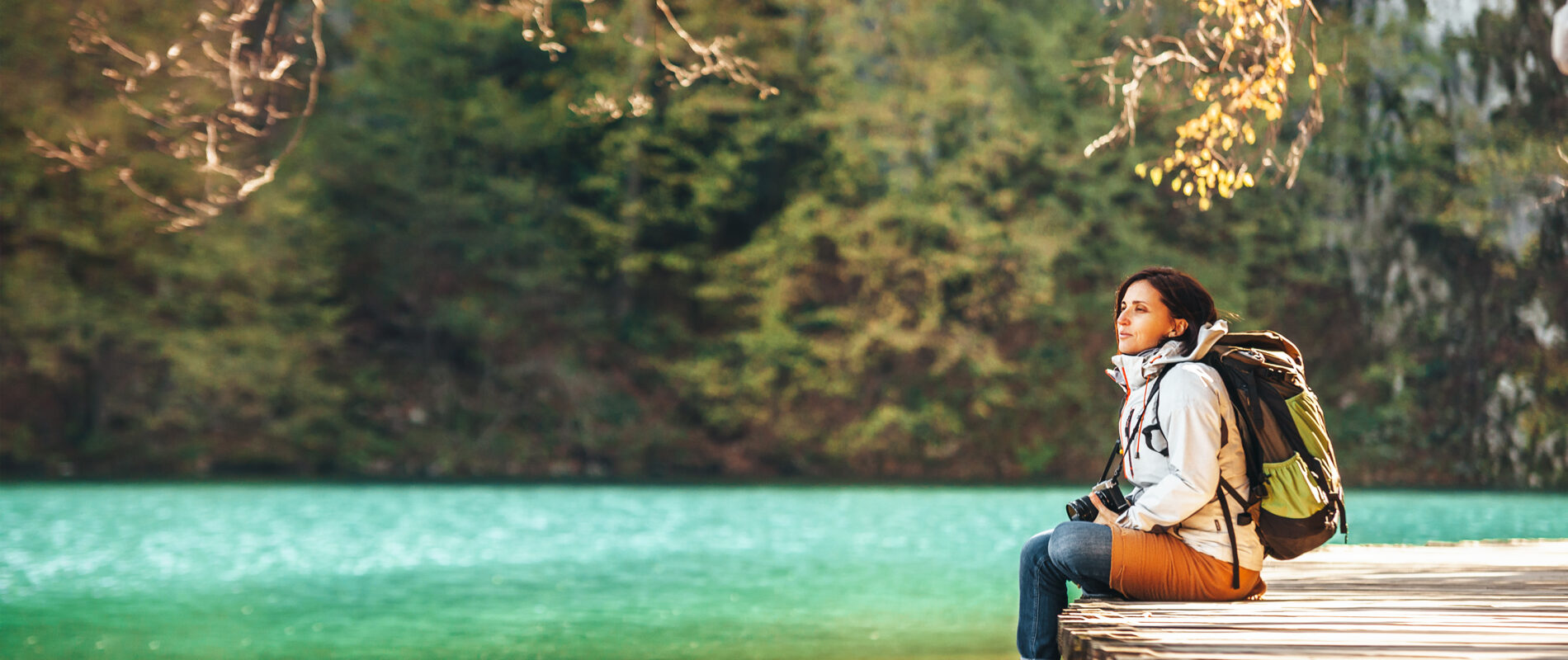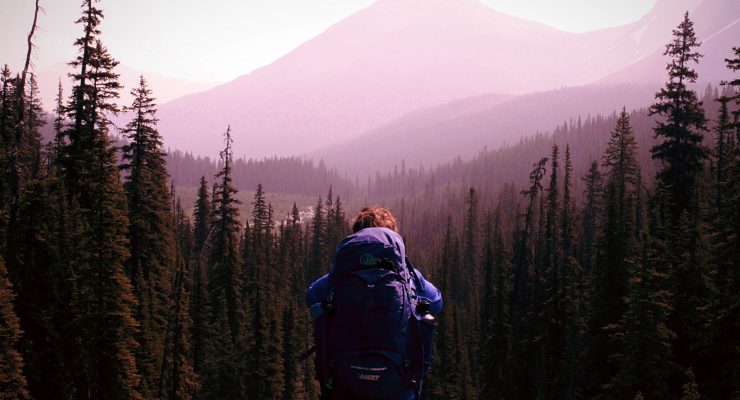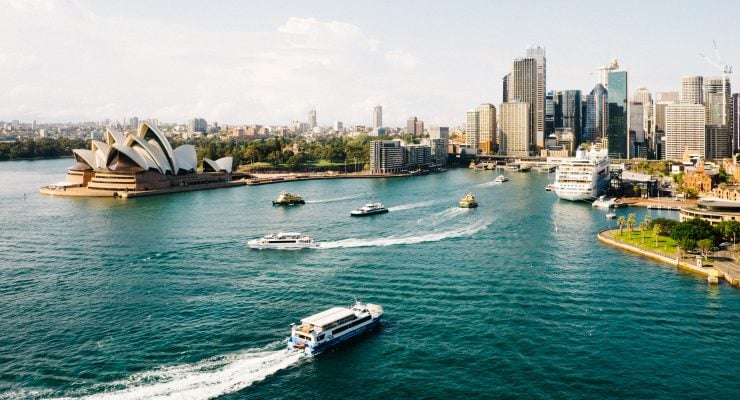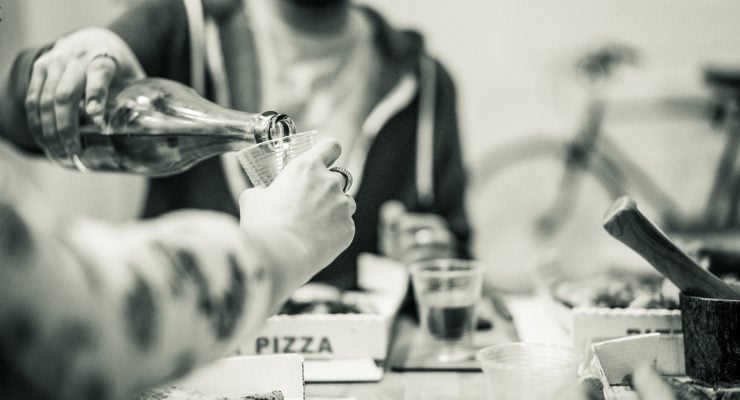Solo travel can be daunting; even more so if you’re leaving home for a long time, like for a gap year or Working Holiday Visa (WHV). Travelling alone should never be feared, but while there are many benefits to travelling solo, it’s also not without its risks. I’m a seasoned solo traveller who has been on three WHVs so far. Based on my experience, here are my top 10 safety tips to make sure you have the best—and safest—time on your next trip!
1. Get insurance
Everyone should consider purchasing comprehensive travel and health insurance, regardless of whether it’s a mandatory requirement for your destination or not. Flight cancellations, lost luggage, hospital visits, stolen valuables… you never know when something might go wrong. You don’t want to ruin your trip or risk cutting it short because you’ve gone over-budget, paying out of pocket for unplanned expenses.
I’ve had to make several claims in my time travelling so, yes, it does happen! I once paid £40 for annual trip coverage and then had to claim back almost £3,000 after a string of incidents. If I’d tried to make a short-term saving of not buying insurance, I’d have been in thousands of pounds of debt in the long run. It’s just not worth the risk!
We’ve been recommending
Globe WHV since 2005. They have covered thousands of working holiday makers over the years.
2. Pack a medical kit
As well as insurance, you should always have a medical kit to hand. It doesn’t matter how young and fit you are; nobody is immune to unplanned slips, trips, food poisoning, hangovers, etc. I’ve saved the day on many occasions for another unprepared traveller, providing painkillers for an unexpected headache or a band-aid for a blister.
It’s especially important to come prepared if you’re travelling somewhere rural and won’t have instant access to pharmacies. Stock up while you can on basics like electrolyte packets, antihistamines, motion sickness relief and anti-diarrhoea pills. If you’re unsure of what else you might need, check out our guide to what to pack in your first-aid kit.
3. Learn the emergency protocol for your destination country
Make sure you’re educated on how to act in case of emergency in the country you will be visiting. For example, do you know which number to dial for the emergency services or how much the ambulance service might cost?
Here are the phone numbers for emergency services in a few countries:
Coming from the UK, I had to learn how to hike safely in bear country in North America. In New Zealand, I was taught earthquake protocol and did, in fact, experience an earthquake while there (a small one, luckily!). In Australia, I needed to work out which spiders and snakes were poisonous and which ones were harmless. Tailor your research to your destination and make sure you’re aware of the main dangers you might encounter, and what to do in that scenario.
4. Tell a loved one your plans…
Whether it’s a weekend away or a two-year working holiday, I won’t go anywhere without first making sure my Mum (who is also my power of attorney) has a copy of my itinerary, accommodation details, foreign phone number, etc. In the unlikely event something happens to me, I know someone other than myself has proof of where I was meant to be and when. If you’re comfortable sharing your live location with a friend or family member, this is another great way of making sure someone has access to your whereabouts.
If you’re undertaking an activity with any element of risk, such as a solo hike or even meeting a potential new friend, set a time after the event when you’ll check in with a trusted loved one. Instruct them to raise the alarm if they haven’t heard from you by the agreed time. Obviously, remember to actually stick to the agreement; you don’t want to worry someone unnecessarily by losing track of time!
5. … But don’t tell strangers your plans
As excited as you may be about your trip, be sensible about what you’re sharing. Random taxi drivers, receptionists and bartenders aren’t entitled to your backstory. I know many solo female travellers wear fake wedding rings or pretend their husband is joining them. I prefer to say I’m meeting a friend, family member or colleague (I would forget about the fake wedding ring and catch myself in a lie!), but the point is to minimise how many people know you’re actually alone.
If I feel uncomfortable, I emphasise that somebody knows where I am and is expecting me (see above tip!). Opportunistic crimes are less likely to happen if the perpetrator knows they will be easily caught, so make it clear your disappearance would raise an alarm.
Finally, a PSA to all social media users. I’ve had to warn people I’m travelling with of the dangers of checking in on Facebook or geotagging an Insta story in real-time. If you advertise your live location, you make it easy for creeps to come and find you. It also puts your home at risk of theft! I never share content to my socials until I’ve completely left the area.
6. Fake it ’til you make it
Nothing screams “tourist” more than someone standing around, looking confused and clearly not knowing what they’re doing. I deliberately act like I know what I’m doing, even if I don’t. I’m often directionally challenged but I’ll exit a subway or bus station and walk with purpose, pretending to casually “check a text” (aka Google maps!) and quickly confirm my route.
Try to research the directions in advance and memorise them as much as possible. Also, try not to stay in one spot or indicate to others that you are lost. If you really need to ask for help, approach someone who is likely to be friendly and not want to take advantage of the situation. Basically, be street smart and don’t let on to outsiders that you’re not confident and clued up on what to do!
7. Be aware of your surroundings
On a similar note, it’s vital as a solo traveller to be vigilant of your surroundings. When I’m out in public, especially in crowds or on public transport, I wear headphones with either low music or nothing playing. I appear to be absorbed in what I’m listening to, when really I’m listening to the world around me. If I see or hear something that looks like it could escalate, such as an argument breaking out, I can quickly make the move to the other side of the street, or further down the train, etc.
If you’re walking around at night, try to stay in busy and well-lit areas. On public transport, stand near other people waiting on the platform and try not to sit in an empty carriage.
8. Don’t let the pickpockets win
Pickpockets are increasingly prevalent in most major cities, and oftentimes they are going for tourists as easy targets. Make it hard for them! Keep your belongings locked—I have used padlocks to keep my bag’s zips closed, and bike chain locks to attach the bag to me/to my surroundings (e.g. my bed or locker in a hostel). I use backpacks or cross-body bags rather than tote bags, which can be pulled off one arm without much effort.
In extremely sketchy locations, I’ve even carried a dummy wallet (empty) and phone (an old model) in my bag, with my real valuables secured in a hidden pocket or on my person in a money belt. If a pickpocket did fish around in my bag, they’d be leaving with nothing but disappointment.
Phone theft has become massive back home in London, so I’m already used to attaching my phone to my hand via a strap or phone grip. Also, remember the above point to pay attention to what’s going on around you… Most phone theft happens on the streets when someone is absorbed in their phone, rather than observing approaching people or bikes.
9. Your life is worth more than trying to save a bit of money
Being honest, it’s hard to prioritise safety when you’re travelling on a budget, especially when you’re travelling solo and have nobody to split costs with. I might aim to schedule my arrival into a new city within daylight hours but, in reality, the cheapest flight/train is often the one that arrives in the dead of night. If you’re alone in the dark with no friendly people around to help, it’s worth the extra money to pay for a taxi or rideshare service. Don’t try to take public transport unless you’re sure the particular area you’re in is super safe at night.
Another example: I recently had to splash out on a 4×4 after heavy storms in Alberta. The original compact car I’d rented couldn’t make it through the deep flooding on the roads. It was annoying in the moment to pay an upcharge, but I had to remind myself an extra $45 was worth way more than risking a possible car crash.
Make sure you have a savings account with some extra money stored in it. Don’t be afraid to use this money if the alternative is putting yourself in harm’s way.
10. Know yourself
We all have different comfort zones and limitations. Ensure you stick to these to keep yourself feeling safe throughout your trip. For example, some people see no issue with getting blackout drunk when solo travelling—party hostels exist for a reason, no judgement! However, a lot of solo travellers only feel comfortable having one drink, or prefer to stay sober to maintain control. If you don’t feel like consuming alcohol, don’t let other backpackers peer pressure you into it.
In my own travels, I have never felt comfortable trying couchsurfing or hitchhiking. However, other travellers I’ve met have felt safer using these avenues than volunteering in homestays or catching public transport, which I’ve done regularly.
Trust your gut and make decisions based on how it makes you feel, not on what others around you are doing. As long as you’ve done your research and feel good about your decision, it’s probably the right choice for you!
Want some more tips for how to stay safe on your travels? We’ve got you covered:
















0 comments
{{like.username}}
Loading...
Load more